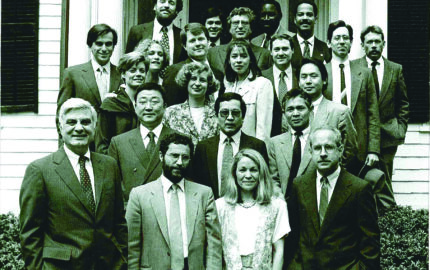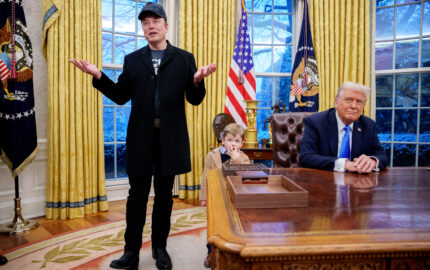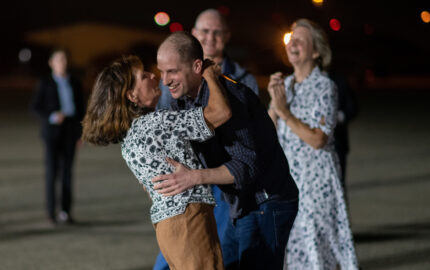Diminished resources in newspaper and broadcast newsrooms are weakening the ability of journalists to report on the spread of disease as well as the dire consequences of poorly funded public health systems and corporate malfeasance. Also diminished is the capacity of news organizations to hold accountable those charged with delivering public and foundation money to people in need.
More information on the global health fellowship and the projects mentioned here is available in the Nieman Foundation's 2009 Annual Report.Without independent reporting on global health issues, the public and policymakers have less of a chance of obtaining reliable information about the effectiveness of treatments and whether rural clinics and vaccination programs are reaching those they should. Without investigative reporting, our understanding of the key roles government leaders, global trade policies and agricultural practices, pharmaceutical companies and medical practitioners play in a variety of health issues is diminished.
So when we discover the enormous value that a dogged and skilled journalist can bring to covering such a story it reminds us why independent reporting on global health is so critical today. Margie Mason is such a reporter. Based in Vietnam, she is a medical writer for The Associated Press (AP) and was one of the three Nieman Fellows in the 2009 class to specialize in global health. The terms of her fellowship—supported by the Bill & Melinda Gates Foundation—enabled her to develop an intensive reporting project during her time at Harvard. The project she settled on was drug resistance, a global health problem affecting the developing and the developed world—for when humans develop resistance to drugs used to treat diseases, then illnesses return and spread, some of them with deadly consequence.
Working with AP colleague Martha Mendoza, Mason devoted her post-Nieman fieldwork to this investigation. Mason traveled extensively to places where drugs were confronting major resistance. She explored how doctors are losing ground in treating malaria, tuberculosis, AIDS and staph infections and how the use of antibiotics in agriculture contributes to the problem. The two reporters delivered a groundbreaking series published late last year. Their stories moved on The AP wire and received extensive play in newspapers and TV stations in the United States and throughout the world. Papers developed follow-up stories and, weeks later, the series was still running in print editions. Several members of Congress have expressed interest in developing policy responses to the problems described in the stories.
In another example, Harro Albrecht, a global health fellow from Germany in the 2007 Nieman class, used his fellowship to take a comprehensive look at the growing industry of international aid targeted at health issues. His reporting from Uganda, Rwanda and India was published in the German newsweekly Die Zeit. The stories established him as an influential voice on global health matters in a nation that had yet to discover why it should even participate in the global fight against poverty and disease. During the past two years, Albrecht has written more than 50,000 words on global health issues and how they relate to people in his own country and throughout Europe.
Talking with global health leaders is another way we can measure the impact of this fellowship opportunity. Paul Farmer, a professor at Harvard Medical School and founder of Partners in Health, has described the fellowship as providing “comprehensive and nuanced understanding [that] can come only through long-term investigation and experience, following the arc of the story as it evolves over time.” While at Harvard, these fellows have helped to connect global health researchers working on similar topics who have not been in touch due to the compartmentalized nature of academic research, and they’ve introduced academics to the realities reporters face in doing their work.
Stefanie Friedhoff, a science journalist, 2001 Nieman Fellow, and special projects manager for the foundation, works closely with the fellows in developing their fieldwork projects. “Most of the philanthropic work that influences so many people’s lives is being carried out in a vacuum,” she says. Educational fellowships of this kind are essential because the public and the policymakers know so little even as international funding agencies and philanthropists are putting a significant emphasis on public health, hunger and poverty. Where do policymakers learn about what works in the field and what doesn’t? Primarily through the work of journalists is her reply.
Mason and Albrecht were two of nine journalists whose fellowships in global health reporting were supported over three years by the Bill & Melinda Gates Foundation. Now, the global health grants have expired, but the significant impact of their work affirms the Nieman Foundation’s commitment to this effort. It encourages us to believe that what they have done will inspire others to provide long-term financial support for a fellowship program that has demonstrated a capacity to expand public understanding of global health issues.
More information on the global health fellowship and the projects mentioned here is available in the Nieman Foundation's 2009 Annual Report.Without independent reporting on global health issues, the public and policymakers have less of a chance of obtaining reliable information about the effectiveness of treatments and whether rural clinics and vaccination programs are reaching those they should. Without investigative reporting, our understanding of the key roles government leaders, global trade policies and agricultural practices, pharmaceutical companies and medical practitioners play in a variety of health issues is diminished.
So when we discover the enormous value that a dogged and skilled journalist can bring to covering such a story it reminds us why independent reporting on global health is so critical today. Margie Mason is such a reporter. Based in Vietnam, she is a medical writer for The Associated Press (AP) and was one of the three Nieman Fellows in the 2009 class to specialize in global health. The terms of her fellowship—supported by the Bill & Melinda Gates Foundation—enabled her to develop an intensive reporting project during her time at Harvard. The project she settled on was drug resistance, a global health problem affecting the developing and the developed world—for when humans develop resistance to drugs used to treat diseases, then illnesses return and spread, some of them with deadly consequence.
Working with AP colleague Martha Mendoza, Mason devoted her post-Nieman fieldwork to this investigation. Mason traveled extensively to places where drugs were confronting major resistance. She explored how doctors are losing ground in treating malaria, tuberculosis, AIDS and staph infections and how the use of antibiotics in agriculture contributes to the problem. The two reporters delivered a groundbreaking series published late last year. Their stories moved on The AP wire and received extensive play in newspapers and TV stations in the United States and throughout the world. Papers developed follow-up stories and, weeks later, the series was still running in print editions. Several members of Congress have expressed interest in developing policy responses to the problems described in the stories.
In another example, Harro Albrecht, a global health fellow from Germany in the 2007 Nieman class, used his fellowship to take a comprehensive look at the growing industry of international aid targeted at health issues. His reporting from Uganda, Rwanda and India was published in the German newsweekly Die Zeit. The stories established him as an influential voice on global health matters in a nation that had yet to discover why it should even participate in the global fight against poverty and disease. During the past two years, Albrecht has written more than 50,000 words on global health issues and how they relate to people in his own country and throughout Europe.
Talking with global health leaders is another way we can measure the impact of this fellowship opportunity. Paul Farmer, a professor at Harvard Medical School and founder of Partners in Health, has described the fellowship as providing “comprehensive and nuanced understanding [that] can come only through long-term investigation and experience, following the arc of the story as it evolves over time.” While at Harvard, these fellows have helped to connect global health researchers working on similar topics who have not been in touch due to the compartmentalized nature of academic research, and they’ve introduced academics to the realities reporters face in doing their work.
Stefanie Friedhoff, a science journalist, 2001 Nieman Fellow, and special projects manager for the foundation, works closely with the fellows in developing their fieldwork projects. “Most of the philanthropic work that influences so many people’s lives is being carried out in a vacuum,” she says. Educational fellowships of this kind are essential because the public and the policymakers know so little even as international funding agencies and philanthropists are putting a significant emphasis on public health, hunger and poverty. Where do policymakers learn about what works in the field and what doesn’t? Primarily through the work of journalists is her reply.
Mason and Albrecht were two of nine journalists whose fellowships in global health reporting were supported over three years by the Bill & Melinda Gates Foundation. Now, the global health grants have expired, but the significant impact of their work affirms the Nieman Foundation’s commitment to this effort. It encourages us to believe that what they have done will inspire others to provide long-term financial support for a fellowship program that has demonstrated a capacity to expand public understanding of global health issues.



